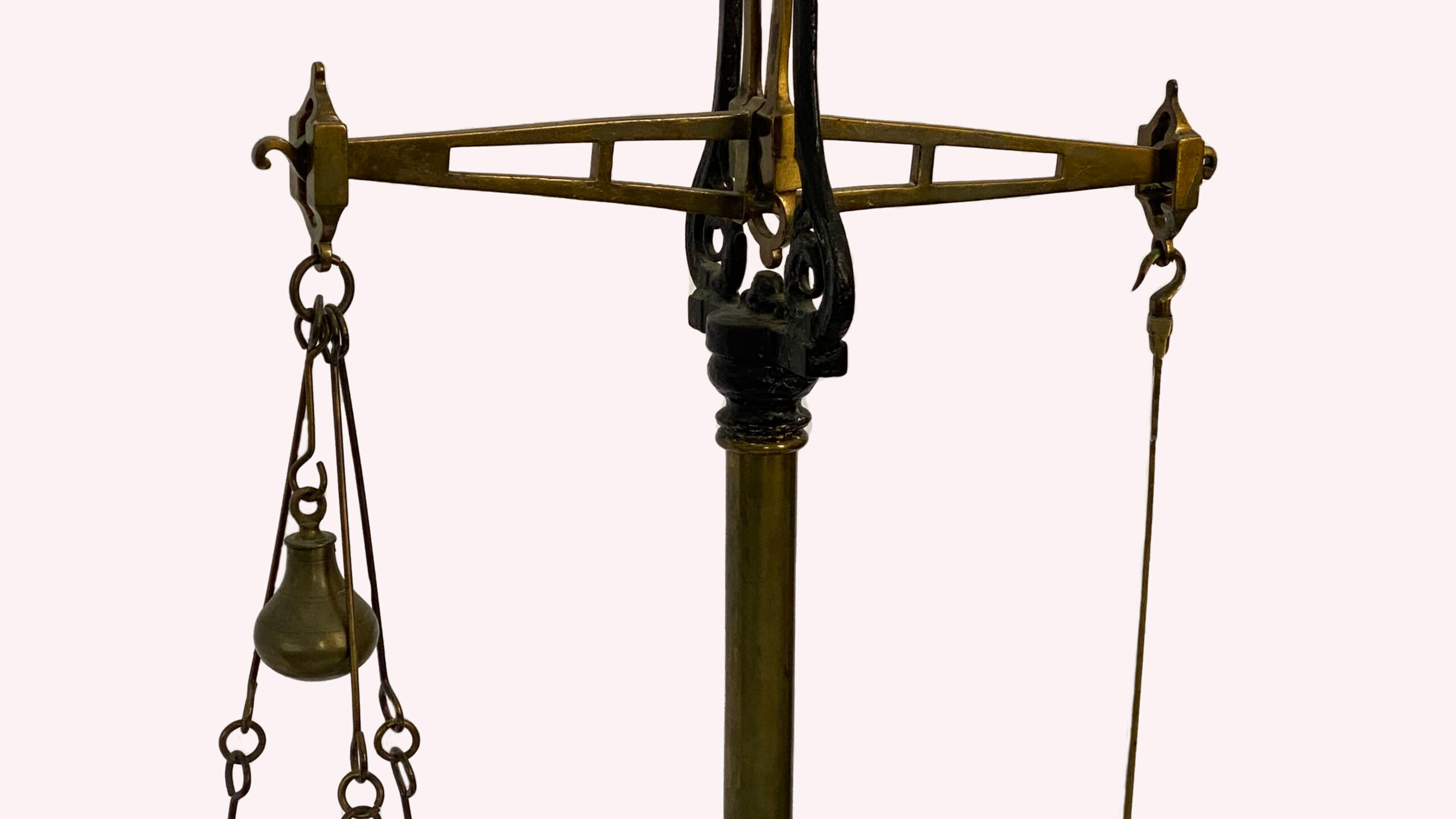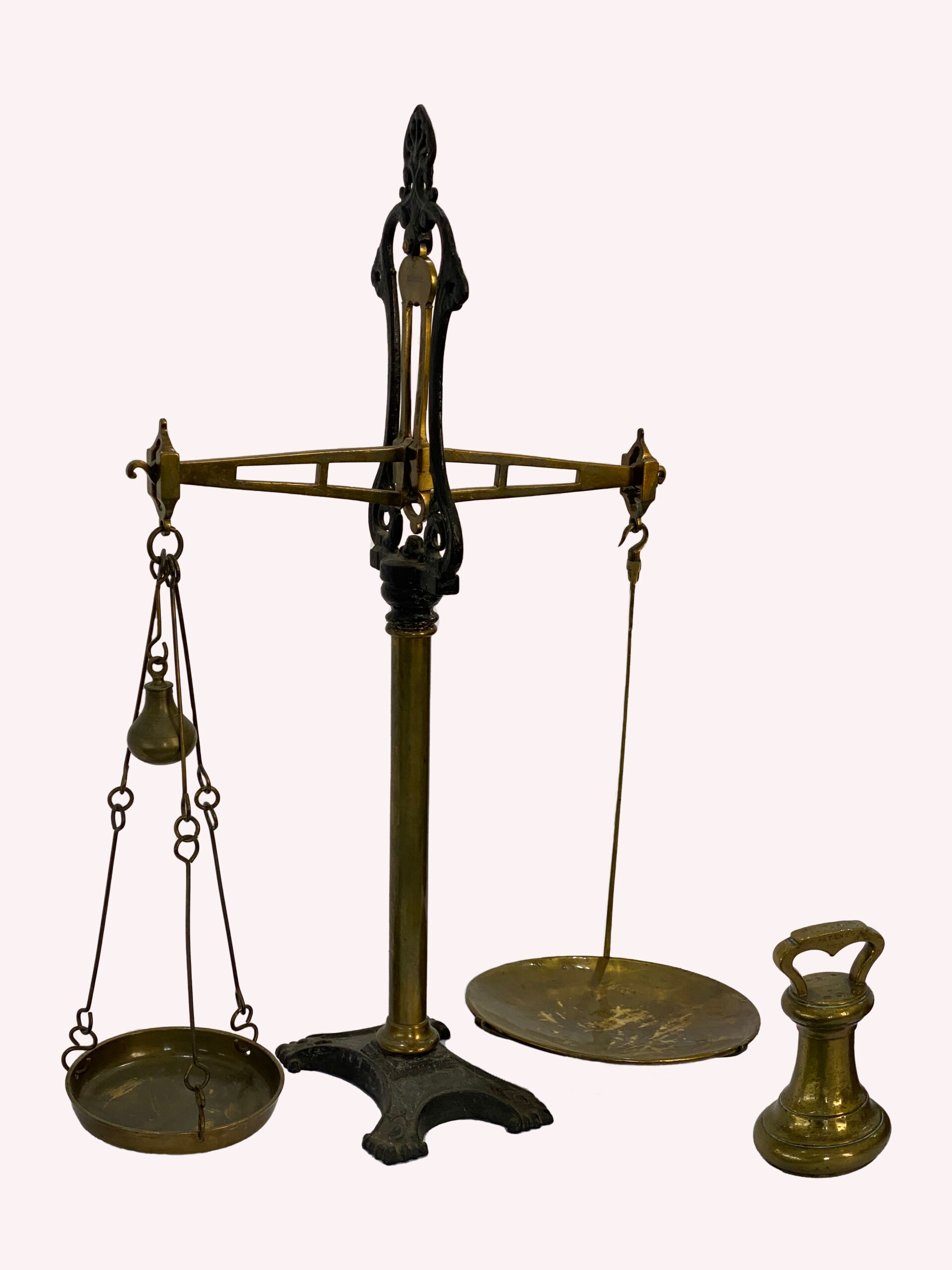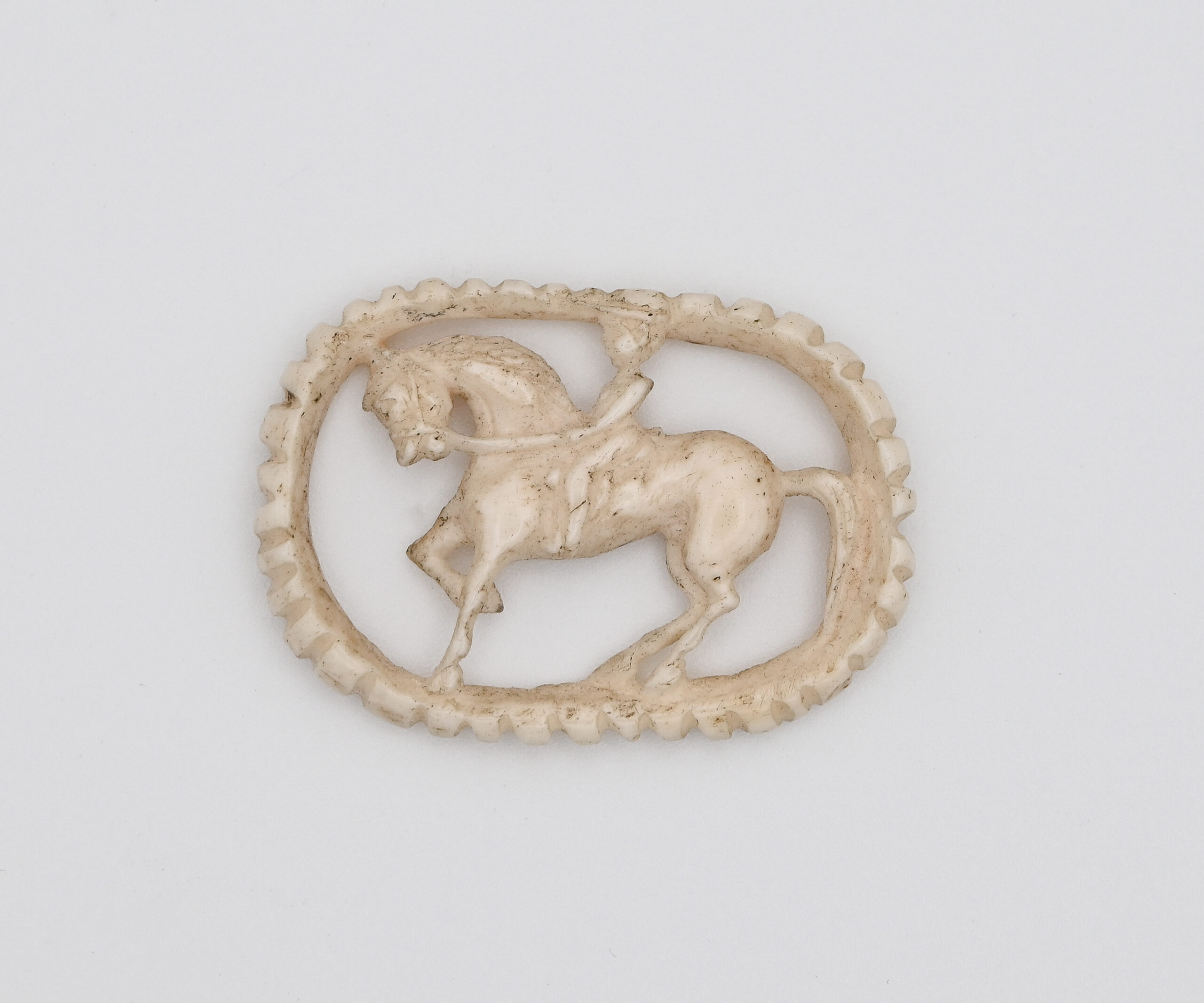Weight Watching
Edmund Webb's Gain from Gold at Bathurst
It’s been said that the people who made their fortunes during the gold rushes of the 1850s were those selling the shovels, not the ones digging.
These scales were used in the store of Edmund Webb at Bathurst, whose general warehouse business prospered when the gold find at the Ophir goldfields was proclaimed in May 1851. By June there were over 2000 people digging around Bathurst, hoping to make their fortune.
Not all of them were there to mine. In her diary of a trip to the Victorian goldfields in 1852, Mrs Ellen Clacy noted the myriad trades servicing the gold mining towns and that the ‘Carters, carpenters, storemen, wheelwrights, butchers, shoemakers, usually in the long run make a fortune quicker than the diggers themselves, and certainly with less hard work or risk of life.’
Storekeepers not only sold their produce to the miners; they also bought their gold, and some used unscrupulous methods to shortchange them. Mrs Clacy noted the many tricks used on the unsuspecting diggers, including unbalancing the beams of the scales in their favour, or falsely weighing down one of the pans, requiring more gold in the other to make it level. Some shopkeepers apparently stooped to greasing the pans of their scales so the gold dust would stick, and others were accused of growing their fingernails especially long in order to scrape up and hide gold dust.
There is no suggestion that Edmund Webb, who was a Mayor of Bathurst and a longstanding Member of the NSW Parliament, used any of these tricks.





